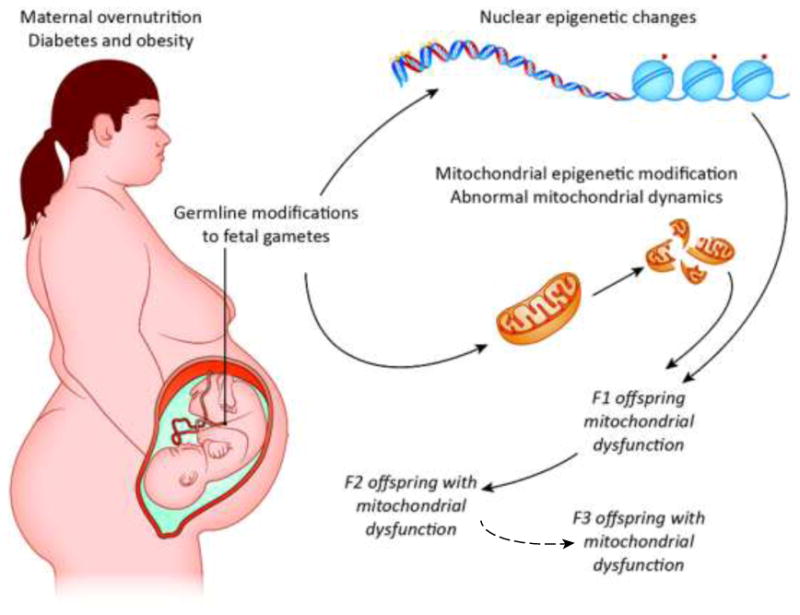Fig. 1.

A schematic of possible maternal overnutrition influences on mitochondrial dysfunction in all tissues of the offspring. In a maternal obesogenic environment, offspring cells could inherit in a germline fashion malfunctioning mitochondria and/or deregulated epigenetic signatures. These alterations contribute to a phenotype of impaired mitochonodrial function for several generations. To be considered transgenerational transmission due to maternal obesity and overnutrition in this example, the inherited traits must be apparent in the F3 generation since the F1 embryo and F2 primordial germ cells are directly exposed to a given environmental factor in utero. In such cases, a change must occur in the germline to allow the effect to persist through three generations.
